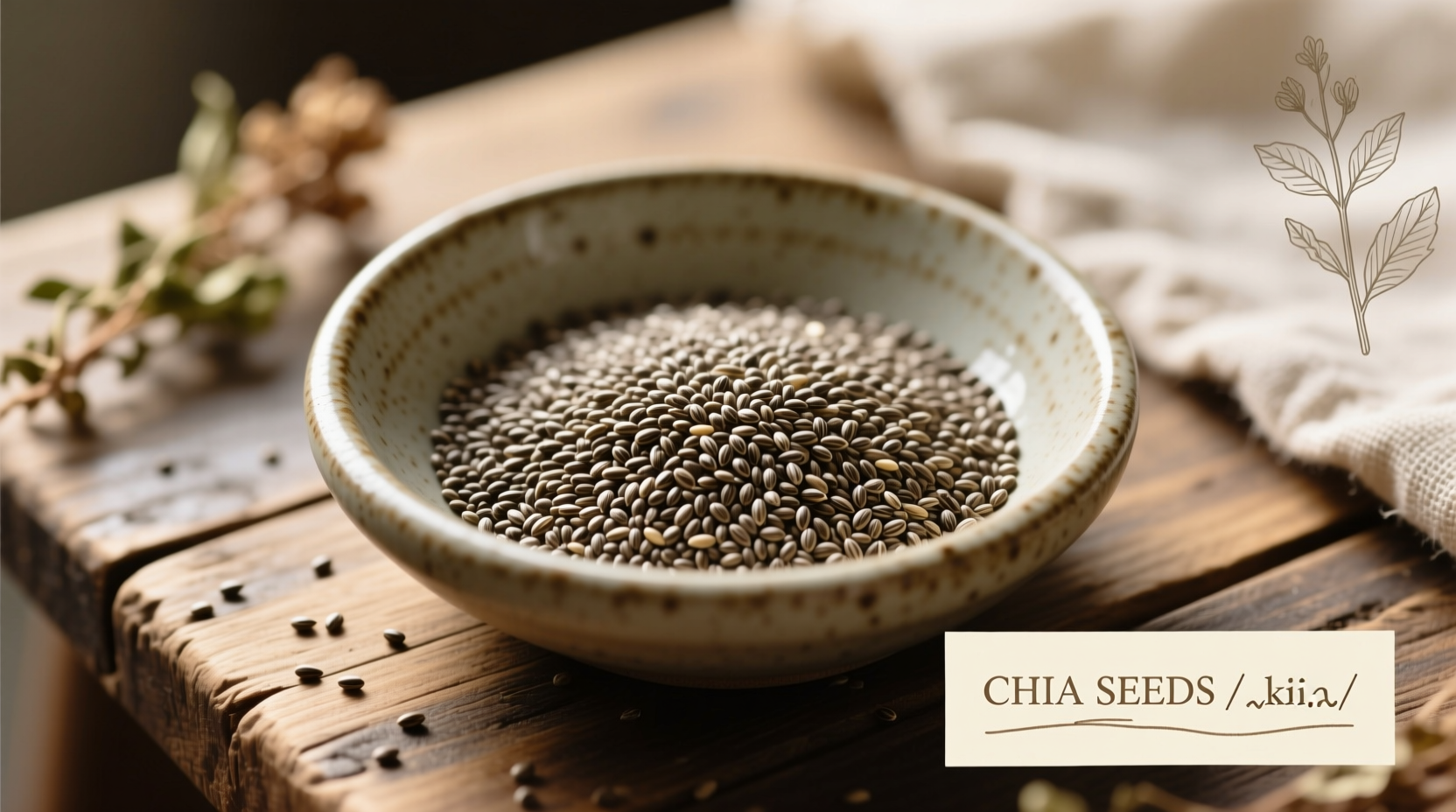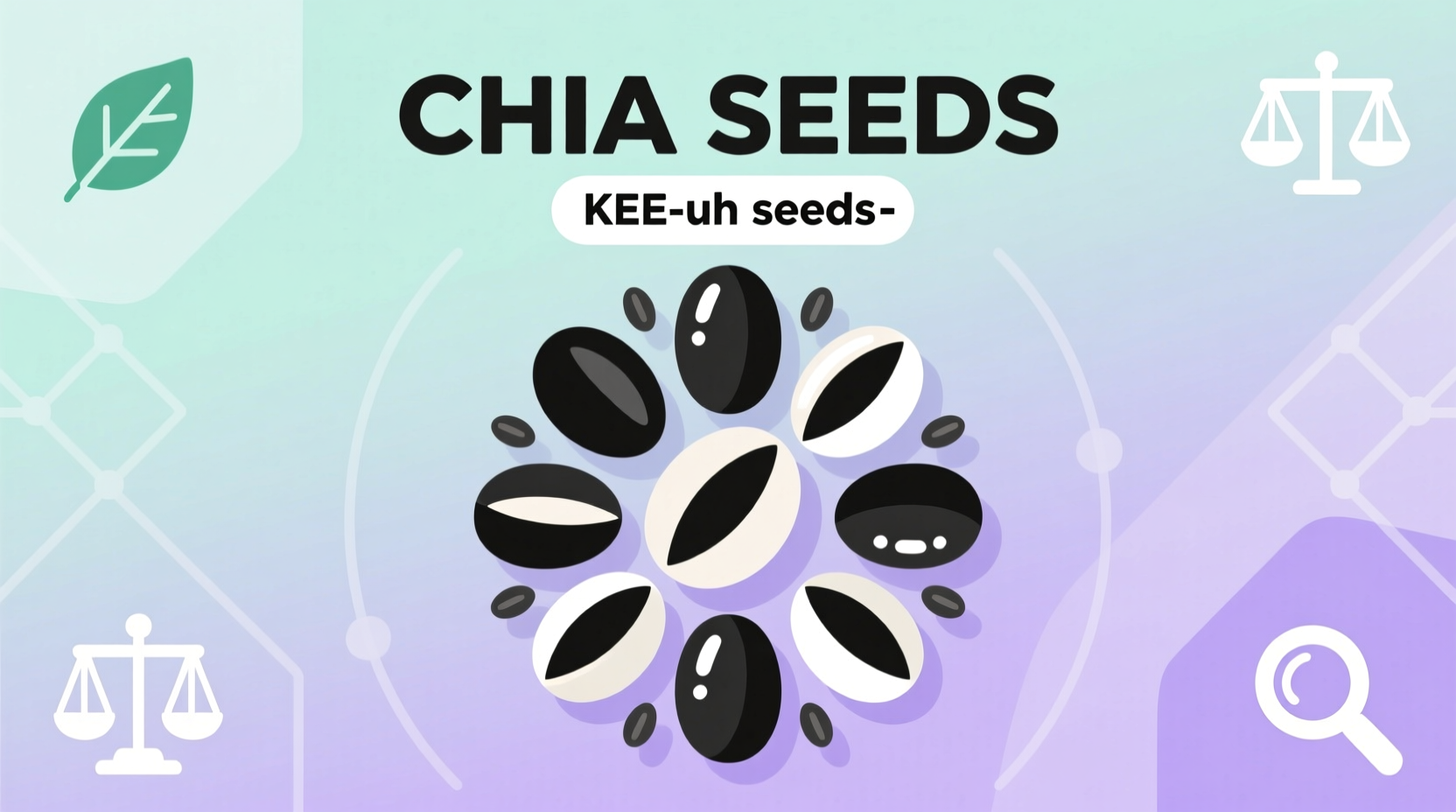Ever stumbled over how to pronounce chia seeds while ordering at a café or discussing superfoods? You're not alone. This tiny powerhouse ingredient from ancient Mesoamerica trips up even seasoned foodies. Let's cut through the confusion with a pronunciation guide backed by linguistic history and expert insights.
Why Chia Seeds Cause Pronunciation Confusion
The mix-up happens because "chia" resembles "chai" (the spiced tea), but they have completely different origins. Chia seeds come from Salvia hispanica, a plant cultivated by Aztec and Mayan civilizations. The word "chia" derives from the Nahuatl (Aztec language) word chian, meaning "oily" – referring to the seeds' high oil content.
When Spanish colonizers arrived in Mexico, they adapted the Nahuatl term into Spanish as "chia" (pronounced CHEE-ah). English speakers later adopted it directly from Spanish, preserving the original pronunciation rather than anglicizing it like many other loanwords.

Breaking Down the Correct Pronunciation
Master how to say chia seeds in three simple steps:
- First syllable: "Chee" (like "cheese" without the "s" sound)
- Second syllable: "Uh" (a soft, relaxed vowel like the "a" in "sofa")
- Full phrase: "Chee-uh seeds" (rhymes with "tea-uh seeds")
Avoid the common mistake of pronouncing it "chai-uh" (like Indian tea). While both words entered English from foreign languages, they have distinct pronunciations rooted in their linguistic origins.
Common Mispronunciations Compared
| Mispronunciation | Why It's Incorrect | Correct Alternative |
|---|---|---|
| "Chai-uh seeds" | Confuses with Hindi "chai" (tea); ignores Nahuatl roots | CHEE-uh seeds |
| "Key-uh seeds" | Over-anglicizes; Spanish "ch" is always soft | CHEE-uh seeds |
| "Chee-ah seeds" | Overemphasizes final vowel; English drops Spanish "a" sound | CHEE-uh seeds |
Why Pronunciation Matters in Culinary Contexts
Getting chia seeds pronunciation right prevents real-world confusion. At health food stores or cooking classes, saying "chai seeds" might get you spiced tea instead of the seeds. Chefs and nutritionists consistently use "CHEE-uh" in professional settings – a small detail that builds credibility when discussing ingredients.
Linguistic evidence from authoritative sources confirms this standard:
- Merriam-Webster Dictionary lists \ ˈCHē-ə \ as the primary pronunciation
- Encyclopædia Britannica notes the Nahuatl origin and standard English pronunciation
Pro Tips for Remembering the Correct Pronunciation
Use these practical memory aids when learning how to pronounce chia seeds:
- Tea Connection: Think "CHEE-uh seeds are as healthy as TEA-uh"
- Seed Visualization: Picture the tiny seeds saying "chee" when they pop
- Context Clue: If you're talking about pudding or smoothies, it's never "chai"
When Regional Variations Apply
While "CHEE-uh" is standard in American and British English, note these context boundaries:
- In Spanish-speaking countries, it's pronounced "CHEE-ah" with a clearer final vowel
- Some Australian and New Zealand speakers use a slightly flattened "CHEE-uh" sound
- Never acceptable: "Chai" pronunciation in any English-speaking culinary context
Frequently Asked Questions
How do you pronounce "chia" in "chia seeds"?
It's pronounced "CHEE-uh" (rhymes with "tea-uh"). The "ch" makes a soft "ch" sound like in "cheese," followed by a relaxed "uh" vowel. This reflects its Nahuatl origin from ancient Mesoamerican cultures.
Why do people often say "chai seeds" instead of "chia seeds"?
People confuse it with "chai" (Indian spiced tea) because the words sound similar. However, "chai" comes from Hindi while "chia" originates from Nahuatl. The mispronunciation persists due to phonetic similarity despite different linguistic roots.
Is "chee-ah" an acceptable pronunciation for chia seeds?
In English contexts, "chee-ah" (with a pronounced final "ah") is less common. While this reflects the Spanish pronunciation, standard English usage shortens it to "CHEE-uh". Culinary professionals and dictionaries recognize "CHEE-uh" as the preferred English pronunciation.
Does mispronouncing chia seeds cause real confusion?
Yes. At health food stores or cooking classes, saying "chai seeds" may get you spiced tea instead of the seeds. Nutritionists and chefs consistently use "CHEE-uh" to avoid mix-ups, especially when discussing recipes or nutritional benefits.











 浙公网安备
33010002000092号
浙公网安备
33010002000092号 浙B2-20120091-4
浙B2-20120091-4